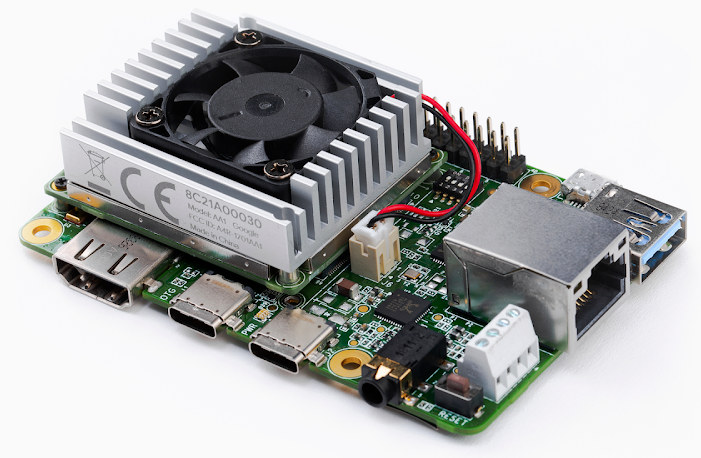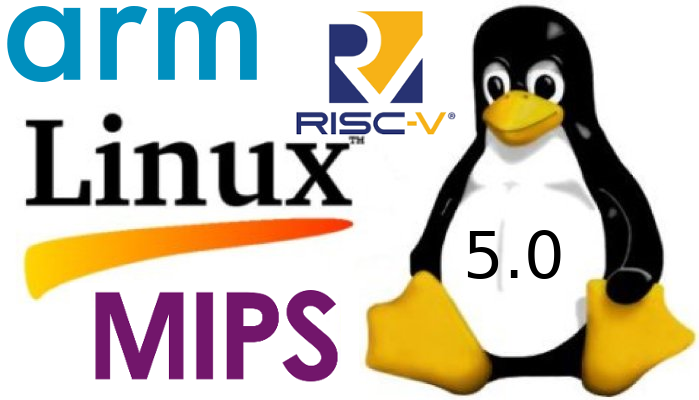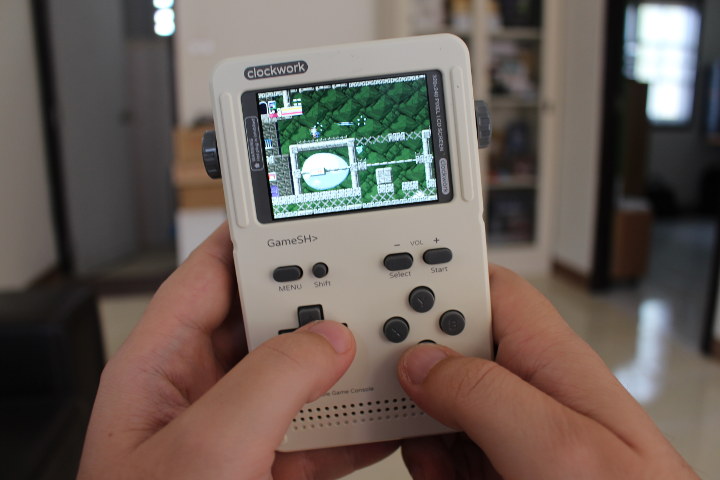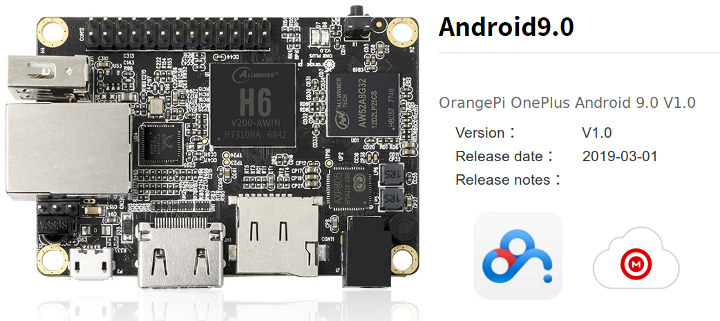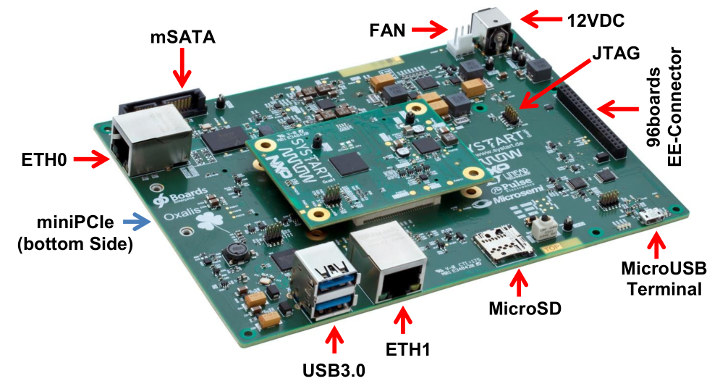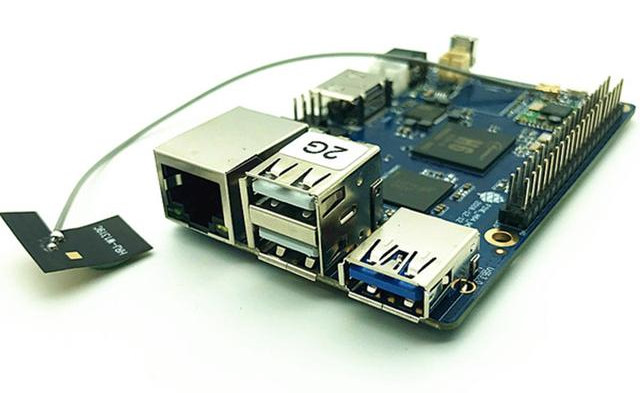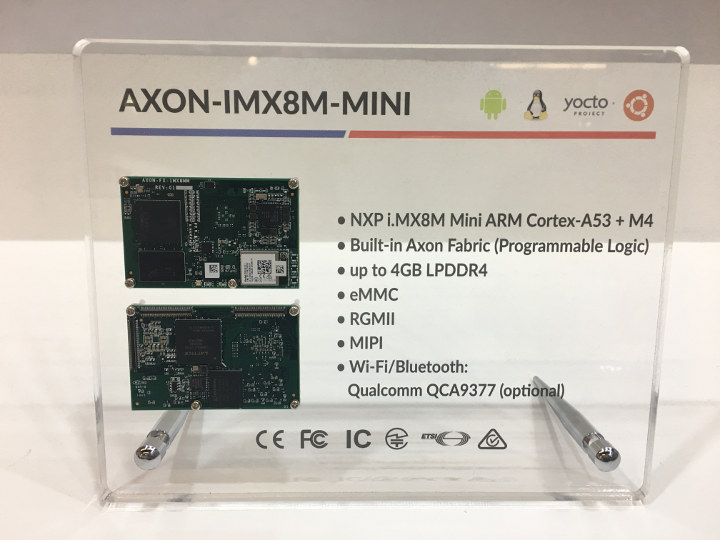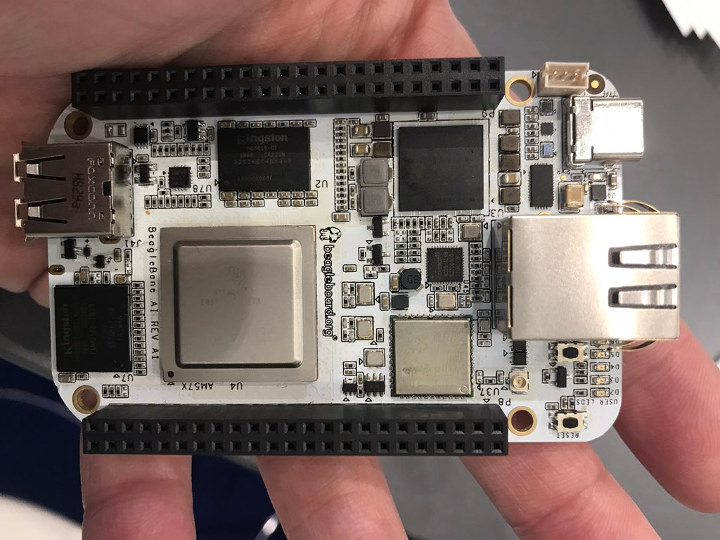Several low power neural network accelerators have been launched over the recent years in order to accelerator A.I. workloads such as object recognition, and speech processing. Recent announcements include USB devices such as Intel Neural Compute Stick 2 or Orange Pi AI Stick2801. I completely forgot about it, but Google also announced their own Edge TPU ML accelerator, development kit, and USB accelerator last summer. The good news is that Edge TPU powered Coral USB accelerator and Coral dev board and are going to launch in the next few days for respectively $74.99 and $149.99. Coral Development Board Coral dev board is comprised of a base board and SoM wit the following specifications: Edge TPU Module SoC – NXP i.MX 8M quad core Arm Cortex-A53 processor with Arm Cortex-M4F real-time core, GC7000 Lite 3D GPU ML accelerator – Google Edge TPU coprocessor delivering up to 4 TOPS System Memory – […]
Linux 5.0 Release – Main Changes, Arm, MIPS & RISC-V Architectures
Linus Torvalds has just released Linux 5.0: Ok, so the last week of the 5.0 release wasn’t entirely quiet, but it’s a lot smaller than rc8 was, and on the whole I’m happy that I delayed a week and did an rc8. It turns out that the actual patch that I talked about in the rc8 release wasn’t the worrisome bug I had thought: yes, we had an uninitialized variable, but the reason we hadn’t immediately noticed it due to a warning was that the way gcc works, the compiler had basically initialized it for us to the right value. So the same thing that caused not the lack of warning, also effectively meant that the fix was a no-op in practice. But hey, we had other bug fixes come in that actually did matter, and the uninitialized variable _could_ have been a problem with another compiler. Regardless – all […]
GameShell Kit Review – Part 2: An Hackable Retro Gaming Console
ClockworkPi GameShell is an hackable retro gaming console combining Arm Linux and Arduino boards that happens to come in kit form, and that’s lot of fun to assemble as we’ve seen in the first part of the review of ClockworkPi GameShell. Since then I’ve had time to have more fun, play some games, and experiment with the device, so I’ll report my experience and point out the good parts, as well as some of the shortcomings I came across. We can press the power button to start it up, and after a few seconds we get to the main menu with several icons including… the self-describing Settings, Retro Games with MAME, MGBA, NESTOPIA, and PCxs emulators that require your own ROMs/BIOS, as well as Indie Games with ready to play games like OpenTyrian spaceship shooting game, or NyanCat. Moving on to the right of the menu we’ve got the famous […]
Orange Pi Software Releases – Android 9.0 Firmware, Linux Source Code for RK3399 / MT6737
Shenzhen Xunlong Software is used to release many different variations of their Orange Pi boards, and more often than not they tend to launch their boards fairly early before the software is fully ready. Many of their boards get supported by the community thanks to Armbian, linux-sunxi, etc… but sometimes the company does release firmware or source code themselves, as they did in the last two days with Android 9.0 firmware for one of their Allwinner H6 board, and Linux source code for Orange Pi 4G-IoT and Orange Pi RK3399. Android 9.0 for Orange Pi One Plus Launched in 2017, Orange Pi One Plus was the very first Allwinner H6 SBC launched on the market, and supported Android 7.0 at the time. But following the release of Android 9.0 for Allwinner H6 TV boxes a few weeks ago, you can now also upgrade your Orange Pi One Plus to Android […]
Oxalis 96Boards Enterprise Edition Board Targets Low Power IoT and Networking Applications
Most 96Boards on the market follow 96Boards Consumer Edition (CE) specification, and while 96Board Enterprise Edition (EE) specification was first announced in 2015 we had yet to have a board available for purchase after previous failed attempts with AMD Opteron (Arm Cortex-A57) powered Cello board. But there’s finally a 96Board Enterprise Edition available today thanks to Systart Oxalis board powered by NXP LayerScape LS1202 Cortex-A53 processor with a packet accelerator, designed for low power IoT and networking applications, and following 96Boards EE “standard” form factor. Systart Oxalis key features and specifications: SoC – NXP Layerscape LS1012A single core Arm Cortex-A53 processor with hardware packet forwarding engine System Memory – Up to 3GB RAM Storage – 64MB SPI Flash for bootloader and RCW, MicroSD Card slot, 1x mSATA connector Networking – 2x Gigabit Ethernet ports (RJ45) USB – 2x USB 3.0 ports Expansion 40-pin low speed (LS) expansion connector with +1.8V, […]
PINE H64 Model B SBC Launched with Raspberry Pi Form Factor
Pine H64 development board was introduced about a year ago with an Allwinner H6 processor, 1 to 3GB RAM, Gigabit Ethernet, a USB 3.0 port, a PCIe socket, and more with the legacy Pine A64 form factor and price starting at $25.99 for the 1GB RAM version. However, Pine64 made a few announcements at FOSDEM 2019, and beside the upcoming Pinebook Pro Linux/*BSD laptop, the company also mentioned a new PINE H64 Model B, still based on Allwinner H6 processor, but instead following Raspberry Pi form factor also used by the company’s Rock64 SBC. The new board is still not available on the official Pine64 store, but Ameridroid is already taking orders for Pine H64 Model B for $38.95 (2GB RAM) and $48.95 (3GB RAM). Pine H64 Model B specifications: SoC – Allwinner H6 quad-core Arm Cortex-A53 processor @ 1.8GHz with Arm Mali T-722MP2 dual-core GPU supporting OpenGL ES 3.1/3.0/2.0/1.1, […]
TechNexion AXON and FLEX SoM Families Feature i.MX 8M Mini SoC, FPGA Fabric
Taiwan based Technexion has introduced several new products at Embedded World 2019 including two new SoM families: AXON and FLEX. AXON is a product family of small form factor (58 x 37 mm) modules designed for specialized embedded applications requiring extra I/O flexibility, while FLEX series is a low-cost family making use of the standard LPDDR4 SO-DIMM connector. Specifically, the company launched new AXON and FLEX modules powered by NXP i.MX 8M Mini processor with AXON-IMX8M-MINI featuring AXON Fabric programmable logic, a specialized IC that provides additional functions including nearly infinite pinmuxing, and FLEX-IMX8M-MINI that offers HD multimedia streaming and integrated 3D graphics for cost sensitive applications. AXON-IMX8M-MINI SoM AXON-IMX8M-MINI SoM specifications: SoC – NXP i.MX 8M Mini Solo, Dual or Quad Arm Cortex-A53+M4 processor FPGA – “Axon Fabric” making use of a Lattice MachXO3LF FPGA with 2100 LUTs (LookUp Tables) System Memory – Up to 4GB LPDDR4 RAM Storage […]
TI AM5729 Powered BeagleBone-AI Comes with TI C66x DSP and EVE Cores
Launched in 2013, BeagleBone Black is still one of the most popular hobbyist board thanks to its many I/Os, software support, and affordable price with being the cheapest board around those days. But it looks like we’ll soon have a new version that allows to experiment with artificial intelligence workloads. BeagleBone-AI is powered by Texas Instruments AM5729 SoC equipped with TI C66x digital-signal-processor (DSP) cores and embedded-vision-engine (EVE) cores supported through a TIDL (Texas Instruments Deep Learning) machine learning OpenCL API. BeagleBone-AI preliminary specifications: SoC – TI AM5729 dual core Cortex-A15 processor featuring 4 PRUs, Dual core C66x DSP, and 4 EVEs System Memory – 1GB RAM Storage – 16GB on-board eMMC flash with high-speed interface Networking – Gigabit Ethernet and high-speed WiFi SB – 1x USB type-C for power and superspeed dual-role controller, 1x USB type-A host Expansion – BeagleBone Black (BBB) compatible headers Dimensions – 86.4 x 53.4 […]


